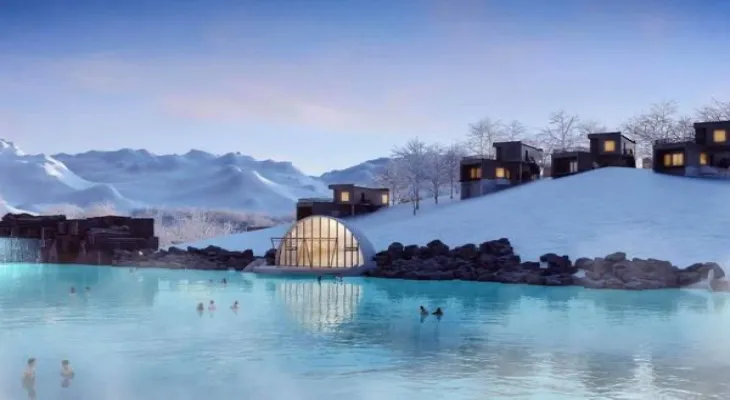Search here
Newspaper
Search here

Arab Canada News
News

Published: October 4, 2022
Canada is planning to create a new outdoor lake, which will be maintained at moderate temperatures throughout the year through a heating system beneath it.
According to newatlas, the geoLagon project is designed to be the largest of its kind in the world and blend with the scenery, also including hundreds of surrounding chalets to form a village that will be completely self-sufficient in energy.
geoLagon is designed based on the famous geothermal lakes in Iceland, to be an outdoor attraction for visitors to relax and enjoy the surrounding areas. The lake’s water, to be built in Charlevoix, Quebec, will extend over an area of approximately 12,000 square meters and will be warm up to 39 degrees Celsius year-round, providing a welcoming refuge away from the freezing air temperatures in the region that drop well below zero in winter.
The planned geoLagon is set to become the largest lake of its kind in the world and will be heated through an energy ecosystem consisting of geothermal energy, biomass, photovoltaic cells, and solar heating systems, along with a thermal reservoir beneath the lake’s base to store heat.
GeoLagon owner and CEO Louis Massicotte said: "This is one of the keys of our recipe.. I have a pending patent on this huge heater located beneath our swimming pool."
Massicotte added that further improvements and technologies such as sewer heat recovery could see the geoLagon village even become an energy provider, but it is positive that the project will at least be able to sustain itself without drawing energy from the grid.
He explained that this confidence stems from a feasibility study conducted by the Canadian Sustainable Energy Foundation Akonovia, which managed the project governance and concluded that its demands can be met with these renewable energy sources.
Massicotte indicated that "there is a strong possibility that the geoLagon project will produce more energy than it consumes, providing an opportunity to supply surplus electricity to the surrounding community."
Groups of chalets will surround the lake once the project is completed, capturing solar energy through photovoltaic cladding to help power the water heat pumps. These cabins can be converted into short-term rentals similar to Airbnb, and according to Massicotte, 80 percent of them have already been pre-sold to investors.
Comments